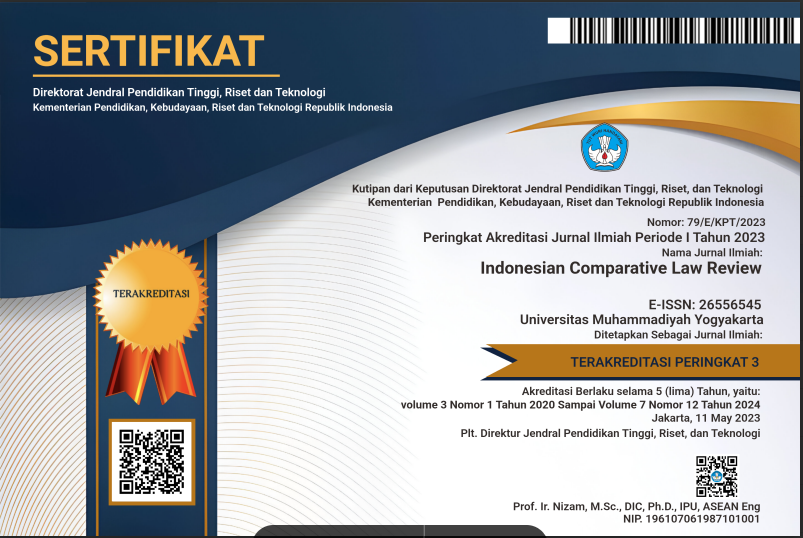Unitary, Federalized, or Decentralized?: The Case Study of Daerah Istimewa Yogyakarta as the Special Autonomous Regions in Indonesia
Abstract
The professed constitutional unitary state claim has been highly debated. Some argue that Indonesia shall be a unitary state in name, pursuant to Article 1 Para. III of the Indonesian Constitution, but Constitutional reforms after 1998 when the autocratic President Gen. Soeharto stepped down granted broad authority to local government, leading Indonesia to a quasi-federation situation in practice. On the other hand, some stick to the aforementioned Article, insisting that decentralization embedded in the Constitution Article 18 Para. II is by no means making Indonesia federal. This article takes the Act No. 13 of 2012 on Special Region of Yogyakarta (the Daerah Istimewa Yogyakarta) granting autonomy to Daerah Istimewa Yogyakarta as a case study to argue for the latter, asserting that the case merely exemplifies the decentralization characteristic embedded in the Constitution. This paper first examines the political features of federalism through a historical legal perspective, showing that the current state system in Indonesia is decentralized but not federalized. This paper concludes that the recognition of Daerah Istimewa Yogyakarta as an autonomous region is simply a practice of constitutional decentralization. This paper also higlights that with recent political development, echoing that the decentralization theory is not a product of legal interpretation, but a constitutional and political reality.
Keywords
Full Text:
PDFDOI: https://doi.org/10.18196/iclr.1210
Refbacks
- There are currently no refbacks.
Copyright (c) 2019 Ming-Hsi Sung, Hary Abdul Hakim

This work is licensed under a Creative Commons Attribution 4.0 International License. View My Stats


